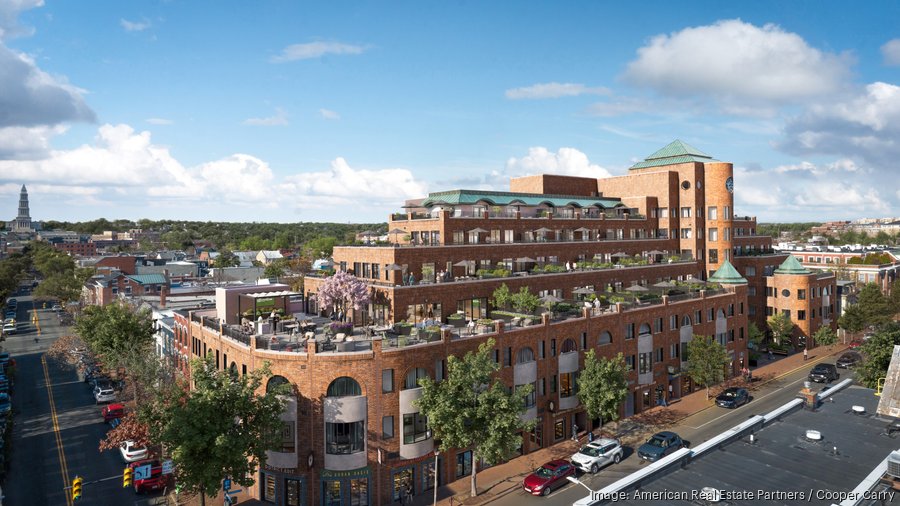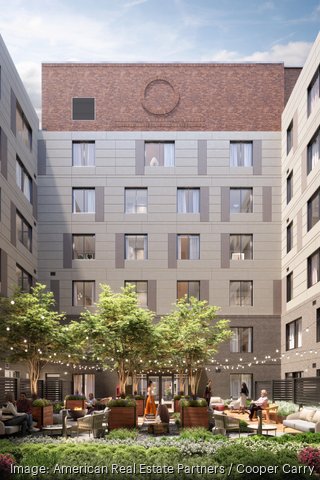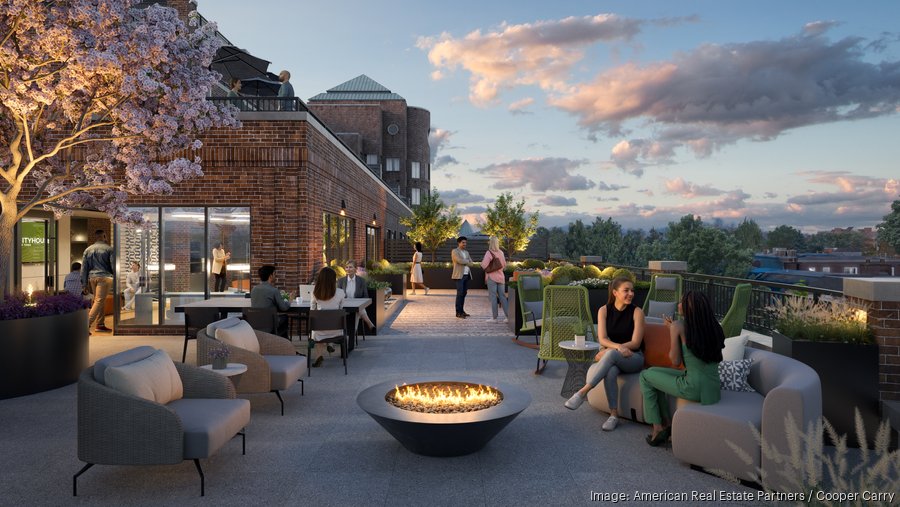AREP's first office-to-apartment project nears completion in Alexandria, and the waitlist is long
American Real Estate Partners is less than 60 days out from opening its office-to-residential conversion in Old Town Alexandria — the company's first ever such project — and the wait list is already some 600 people deep for nearly 200 apartments.
American Real Estate Partners is less than 60 days out from opening its office-to-residential conversion in Old Town Alexandria — the company's first ever such project — and the wait list is already some 600 people deep for nearly 200 apartments.
The project is CityHouse Old Town, AREP's conversion of a 200,000-square-foot, 1980s-era former office building at 1101 King St., near the top of the historic downtown's main drag. McLean-based AREP bought the units in the largely vacant office condominium building in 2022, shortly after city officials approved its conversion proposal, and construction began in 2024. Now, the first residents are anticipated to take occupancy in mid-November, with units continuing to come online in stages throughout the months to follow.
The project fits with AREP’s strategic pivot from largely office into residential, and it's encouraging the company to actively consider a “few” other conversion opportunities, Brian Katz, AREP's president and co-founder, said in a recent interview.

“The lion's share of our investment dollars and time is in two sectors,” Katz said, naming residential and data centers. "We haven't invested in an office building in five years."
Katz called CityHouse “one of the most interesting, complicated design projects we've ever taken on” — and said AREP's success with the project has given the firm the confidence to pursue similarly complicated conversions, albeit allowing for “some significant contingencies in your budget, because things just pop up.”
A company that hadn’t been through a conversion before might be more “gun shy,” Katz said.
Where those other opportunities are Katz wouldn’t say, though he stressed that AREP is a national developer with interests beyond Greater Washington.
Aside from simply being in a highly amenitized area, Katz spoke to two main factors that contributed to CityHouse Old Town’s success: the building’s unique design and the timing of project financing.

While the office has relatively deep floor plates — a common reason that offices are not considered good candidates for conversion — it also happens to have come with an interior atrium. Because the atrium had a roof on it, “there wasn't a lot of light that used to get into the interior center courtyard,” Katz said. But AREP removed the roof, after someone on the idea pitched the idea "in sort of a joking moment," so now it’s an open-air, landscaped courtyard that interior units open up onto.
If it'd just been a solid, cubic building with no atrium, “I don't think this would have been a candidate for conversion,” Katz said.
Another useful feature he noted that lent well to conversion is the building’s “wedding cake design” — the facade steps backs several times as you go up — allowing for “unbelievably large balconies,” in some cases “as large as the apartments themselves.”
With respect to financing, the Old Town conversion was “unique because we didn't do it early in Covid,” before Treasury and interest rates and construction costs spiked, Katz said. “We didn't get caught having developed this under an older construction cost or an older rate environment,” he explained. Other multifamily projects that’ve launched over the past three to five years are going to face “trouble” in the coming years, he said, as they’re forced to refinance old loans in a much higher interest rate environment.

AREP could finance CityHouse Old Town again, if it were starting today, Katz said.
He conceded that, in today’s economic environment, it’s generally easier to finance for-sale townhouses than multifamily, since rising costs have squeezed cash flow from the latter harder.
“Part of the problem with higher interest rates is that you're really not getting the number of new projects and number of new apartments developed that you need to keep up with the pace and the demand of apartments,” Katz said. “Instead, the sale numbers of townhouses are higher, and so people are taking plots of land or older buildings, knocking them down, because the returns for investors make much more sense in for-sale town homes than they do in apartments.”
Starting monthly rents at CityHouse will range from $2,430 for a junior one-bedroom to $11,815 for a three-bed/two-bath with a den.




